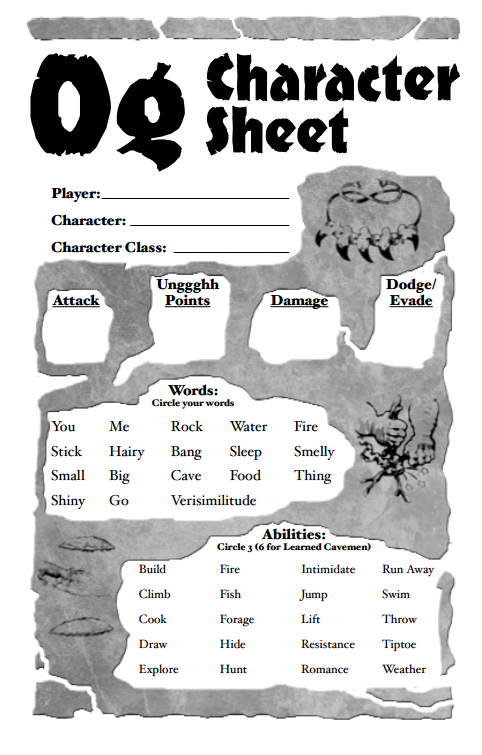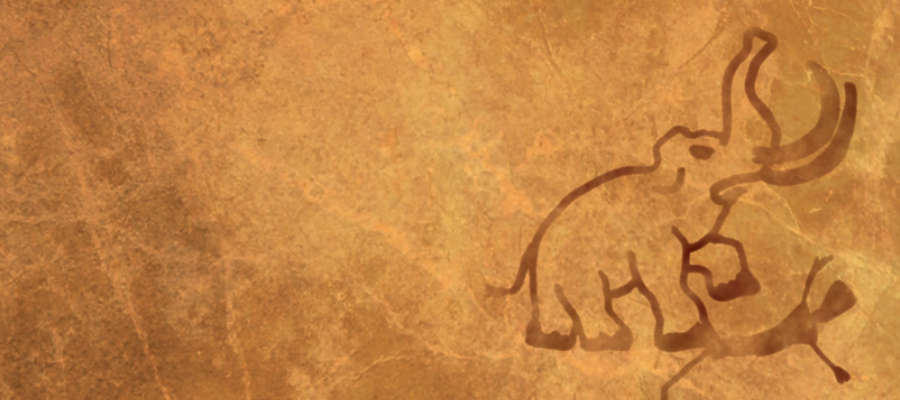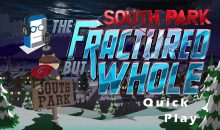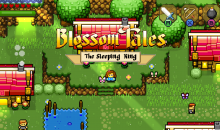Romancing the Monkey Man: Og Unearthed Edition
This past Friday my friends and I gathered around a table for some serious roleplay. We got our character sheets out, our dice out, pulled up chairs, and immediately started grunting, flailing, and romancing. I ran a one-shot of one of my favorite games: Og, Unearthed Edition, written by Robin Laws and published by Firefly Games in 2007. It’s one of those “humor games”, but trust me when I say that this clever humor game delivers in a big way. A big, shiny way.
Releasing your Inner Caveman
 The premise of Og is simple: you’re the young movers and shakers of a tribe of prehistoric cavemen. You’re probably hungry or cold, and you should do something about that. The world is big, confusing, and full of hazards. And the game never gets more complicated than that.
The premise of Og is simple: you’re the young movers and shakers of a tribe of prehistoric cavemen. You’re probably hungry or cold, and you should do something about that. The world is big, confusing, and full of hazards. And the game never gets more complicated than that.
But Og isn’t about what it allows you to do, it’s about what it disallows. Cavemen like you can only say the words you know, and that’s not too many. You choose 1d6+2 words from a caveman themed word bank on your character sheet, you need to fill in the gaps with gestures and grunts. When you, the player, are faced with problems like a dinosaur charging the party, navigating a cave filled with giant spiders, or attempting to negotiate a trade agreement with the neighboring tribe, your character might be able to say “rock”, “stick”, “big”, and “me”.
Robbing the players of their ability to communicate is astounding. Everyone at the table already knows what a comical caveman acts like, but now they are that cavemen. Limiting communication forces players to think prehistorically, never hatching plans much more complicated than what is in front of their face. And it’s fun to make loud noises and gesticulate! The very act of grunting and pointing sets the mood, every Og evening is guaranteed to digress into craziness.
A Very Simple Stone Wheel
Most of the system is appropriately simple. When you want to do something you roll 1d6. On a 5+ you succeed, if you’re using a trained ability you succeed on a 3+. On a 1 you temporarily forget how to do what you were doing in the most comical way possible. There are some classes that allow cavemen to excel in unique ways, and there is combat, but that is all secondary. The point of the game is that you have a few abilities, a limited vocabulary, and you need to find some food!
The setting, or lack there of, is also crucial to the fun. When the setting is so non-serious and the PCs are so dumb, crazy plans are just begging to be hatched. When you’re a slope-browed caveman it’s easy to justify the dumbest/most humorous plan at every turn. Conflicts in Og often boil down to one of two results: success in a hilarious hare-brained scheme or spectacular failure that digs the party in deeper.
For example: my players were faced with a rampaging tribe of monkey-men that were hell bent on claiming their food. A huge fight could have broken out, or the party could have run, but no, Megan decided to use her Romance skill on the lead monkey-man to try to diffuse the situation. After the table regained their shit, from losing their shit watching Megan show us how she’d seduce a monkey-man, she rolled a d6 and watched to see if a 3+ showed up. Either way we were having fun. She was either going to win a fuzzy suitor or another caveman scheme would be needed to get them out of the new mess. That is Og: one ridiculous situation after another where failure is fun.
(Spoilers: she had a fuzzy suitor.)
Not Completely Evolved
Og started out as a Dungeons & Dragons parody and, unfortunately, it hasn’t left that baggage in the prehistoric past. In a rulebook that’s only 48 pages a fair bit is dedicated to a completely a broken combat system that’s supposed to be “D&D-ish”. You roll initiative, make attack rolls, deal damage, etc. What would be fun in a tactical game is a slog in the fast paced antics of Og. Without showing my math, it would take 3-4 full rounds of combat for a party of six cavemen to focus-fire an average caveman to zero hit points. If you had a six on six fight, well, you see the problem already.
The combat system belongs to a different game; it takes that win-win antics philosophy of the rest of the game and throws it out of the window. Stick to the crazy plans and misunderstandings! If a fight breaks out, roll opposed Attack checks and let it be.
Big Shiny!
The term “humor game” is thrown around a lot. Until I stumbled upon Cards Against Humanity, I didn’t really believe that they existed. I was familiar with games that have amusing premises, like Paranoia, and games with amusing art, like Munchkin, and games with amusing words, like Gloom. (Keith Baker I love you.) But I never saw any of these games create humor, which is completely different than having amusing parts. Cards Against Humanity is also filled with amusing parts, but it was a toolbox for you to create your own humor. The humor is emergent in Cards Against Humanity, as it is in Og.
By taking away tools that we take for granted and filling player heads full of slapstick caveman art, Og primes you to create your own humor. It is a game that promotes legitimately funny stories, even if you have to ignore a few system bumps to keep the goofy momentum up. The game has been out of print for a few years now, but the PDF is still available on Firefly’s website. The game is ill-suited for campaign play but it will provide you many one-shots that leave you breathless from laughter. Add a reasonable $8 price tag and you have a product that I can’t suggest highly enough. Verisimilitude.







I just ran my first game of Og a couple of days ago, with my wife and a buddy who was visiting from another state. It was my wife’s first RPG and she loved it. We were wondering tho, if we were “doing it right”, because the limited vocabulary system didn’t come in to play as much as we thought it would. Now, maybe the scenario I wrote just didn’t require enough table talk, or maybe when the players were allowed to talk to me, the other player was using too much of that info to inform their next action? I don’t know, we had a blast, but were left thinking that we didn’t use the “words” system as much as we should have.
I’m glad you have fun!
A bit of GM input on promoting the language limitation: I’ve found that the more concrete I made the challenges, the less likely language shenanigans were to happen. I learned to purposefully keep the stage sparse to allow my players to come up with their own wacky ideas and hatch their own hilariously misunderstood in-game plans.
For example: I’ve started every game of Og I’ve run with the PC’s nice geothermally heated cave exploding as the volcano above them becomes active. I take the reigns for thirty seconds and narrate them running away with their tribe. After the right amount of running, the players stop at the edge of the jungle and see 100 red hungry eyes peering out from the shadows. The game starts with the players being stuck between a rupturing volcano and a dangerous jungle, surrounded by their fellow tribesmen asking where their next meal is coming from. Cue a hilarious discussion as to what to do next.
The lack of guidance and detail really sets expectations well. When the first moment of player interaction is yelling “you go water” and “bang hairy thing” with lots of gesturing, you’re in for a fun night. It’s only getting sillier from there.
Also: stay away from the combat at all costs. Takes precious minutes away from caveman hilarity!